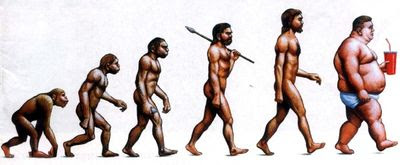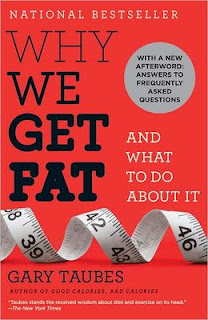 |
| Photo from http://interacc.typepad.com/ |
 |
| Photo from http://www.drgourmet.com/ |
 |
| Photo from http://www.itsyummi.com/ |
Why drastically reduce carbohydrate intake to lose weight?
 |
| Photo from http://www.barnesandnoble.com/ |
The first time I heard about this “low carb diet”
idea was from my Dad. Subjected to high blood pressure and high
cholesterol, his doctor recommended reading the book Why We Get Fat And What
to do About It by Gary Taubes and following the guidelines to lower his
high numbers and most importantly blood sugar. Initially, I could not
believe increasing meat consumption and reducing carbohydrate intake could
result in weight loss. After switching to a low carb diet, my Dad has
lost fifteen pounds since Thanksgiving, and his numbers are significantly
lower. He didn’t take diet pills, follow some “fad” diet, or even
increase his time exercising at the gym. He simply replaced common foods
like bagels, rice, potatoes, and pasta with nuts, eggs, and a variety of
meats. Seeing his remarkable results is all the proof I need to believe
in this new lifestyle. About a month ago, I started to cut back on
carbohydrates.
 |
| Photo from http://www.dietdoctor.com/ |
So, what's the science behind all of this weight loss and carb cutting?
Similarly to the photo above, Taubes explains numerous times in his book how carbohydrates make us fat. First, the hormone insulin causes our bodies to store fat. Because carbohydrates determine the amount of insulin we secrete, the more carbs we eat, the more insulin is produced, and the more fat is stored. By reducing the amount of carbs we eat, our glucose levels will be lower and less fat will be stored. He also describes how the carbs that make us the fattest are the ones we can digest quickly--sugars and starches. These foods consist of anything from a baked potato, to a bowl of spaghetti, to croutons in a salad.
 |
| Photo from http://www.ifood.tv/ |
But, increasing meat, egg, and fat consumption is supposed
to increase the risk for cardiovascular disease, right?
Although genetics play a key role in blood pressure and cholesterol, there’s a great possibility an individual at risk for a heart attack is probably overweight or obese. Because certain carbohydrates make us fatter than others, Gary Taubes introduces the idea that these carbohydrates can also lead to heart disease; similarly, the hype about limiting fats in our diet is overrated. Many Americans today are more concerned with reducing fat in their diets than in the past, yet more and more people are overweight. What has changed? The amount of carbs people consume has increased, especially fried foods, which means cutting out dietary fats and proteins. Simply put, there has been an increase in obesity, diabetes, and heart disease even though people aren't eating as much fat. Therefore, eating food, such as proteins and fats that make you lose weight cannot also possibly lead to heart disease.
Although genetics play a key role in blood pressure and cholesterol, there’s a great possibility an individual at risk for a heart attack is probably overweight or obese. Because certain carbohydrates make us fatter than others, Gary Taubes introduces the idea that these carbohydrates can also lead to heart disease; similarly, the hype about limiting fats in our diet is overrated. Many Americans today are more concerned with reducing fat in their diets than in the past, yet more and more people are overweight. What has changed? The amount of carbs people consume has increased, especially fried foods, which means cutting out dietary fats and proteins. Simply put, there has been an increase in obesity, diabetes, and heart disease even though people aren't eating as much fat. Therefore, eating food, such as proteins and fats that make you lose weight cannot also possibly lead to heart disease.
In the interview from 2011 of Mr. Taubes on a Denver News Station posted above, he explains how carbs are ruining our bodies and why they must be avoided to maintain better health. In order to follow the low carb diet proposed by Gary Taubes, you need to know specifically what foods to avoid and what foods to add to your diet. You should eat eggs and meat everyday, preferably lean meats like chicken and turkey; you should also eat salad greens and vegetables such as spinach, cabbage, mushrooms, and broccoli. Foods to be eaten in moderation include non-processed cheeses, cream, olives, and mayonnaise. You can use butter, and oils, such as olive and peanut, when cooking as well. Try to avoid alcohol, sweets, and sodas as much as possible. There are many meal options when following this diet, but there are also a lot of carb-related restrictions. Taken right from his book, here are foods you should not eat:
1. Sugars (Simple Carbs)
- These
include white sugar, brown sugar, honey, syrup, molasses, corn syrup, beer,
milk, flavored yogurt, fruit juice, fruit.
2. Starches (Complex Carbs)
- These include grains, rice,
cereal, flour, cornstarch, breads, pastas, muffins, bagels, crackers, starchy
vegetables (such as slow cooked black/pinto beans), carrots, parsnips, corn, peas, potatoes, French fries, potato
chips.
 |
| Photo from http://hrtower.com/ |
As Gary Taubes states, “There is no such thing as an essential carbohydrate.” This quote particularly stuck out to me, as I have finally realized that it is possible to remove them from everyday meals. We don't need bread, or a donut, or even a baked potato to survive. Our ancestors lived off of fruits, vegetables, and meat from various animals. They never ate bread, and for the most part, they were way leaner than the American society today. With that being said, I encourage each and every one of you to try this diet, as I am myself, for a few months and note the changes. These conditions may seem a bit intense, and too strict to follow, but eliminating most or all of the unnecessary carbs from your diet will show crazy results. Challenge yourself, but adjust your diet accordingly. Maybe eating pasta once a week instead of five times a week will work for you; on the other hand, maybe completely cutting out pasta from your diet will yield better results. There is no one defined answer that applies to everyone, but making any significant change will be beneficial.
I personally don't follow this diet word for word nor do I suggest you do. Even though the diet restricts mainly all carbs, I do eat cereal, oatmeal, and
sometimes toast for breakfast. This adjustment is huge, considering I was
the "carb queen,” and ate bread, pasta, cereal, and bagels with each
meal. I try to eat chicken, turkey, tuna, or salmon everyday along with
two eggs and a salad. Unfortunately, my options are limited here on campus,
so I usually just stick with the chicken. I replaced crackers, chips, and
easy mac with dry peanuts, plain Greek yogurt, and hard-boiled eggs. In addition to this low carb diet, I have not eaten fried foods, chips, or
drank soda in over three months. Even if you don't notice immediate
results, you will feel better physically and emotionally from the
transition. Anything worthwhile takes time. Are you ready to go against the grain?

No comments:
Post a Comment